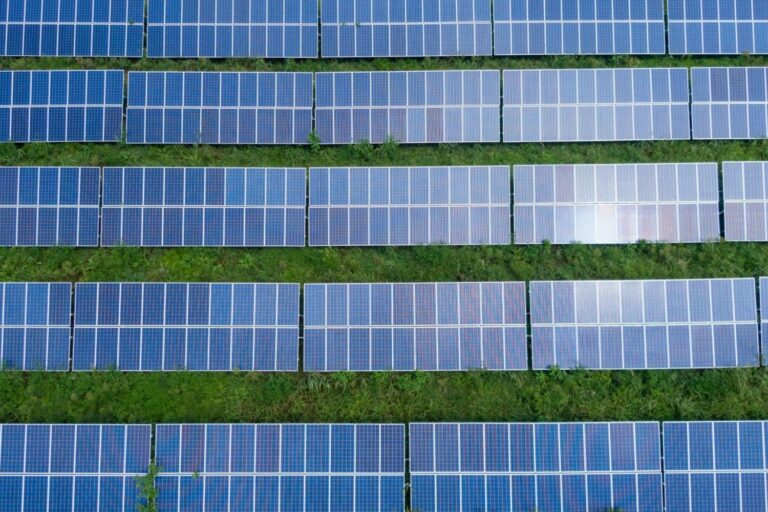Lithuanian Airports has launched a public tender for the design of a 4.5MW solar park plant at Vilnius Airport, a 1.2MW solar park plant at Kaunas Airport and a 0.4MW solar park plant at Palanga Airport. Overall, land areas totaling about 7ha are to be allocated for solar power plants at the airfields of Vilnius, Kaunas and Palanga airports – around 5ha in Vilnius, 1.5ha in Kaunas and 0.5ha in Palanga.
The winner of the public tender will develop a solar power plant with a total capacity of 6.1MW, which would meet about one-third (about 34%) of Lithuanian Airports’ total electricity demand. It is estimated that 5MW and 10MWh storage capacity should be built at Vilnius Airport, 0.9MW and 2.5MWh capacity at Kaunas Airport and 0.5MW and 1.5MWh capacity at Palanga Airport. Energy storage parks are also planned to be built nearby. Palanga Airport would generate the largest share of its electricity from the sun – around 40%. Solar power plants at Vilnius and Kaunas airports would generate 33-34% of the annual energy requirement, which could be used immediately or stored in dedicated energy storage systems (storage units).
The company is looking to have the design contract signed with the winning company in the first quarter of 2024, with a view to completing the design part by the end of the same year. The contracting work for the solar parks should start in mid-2025 and is expected to be completed by the end of 2025.
Lithuanian Airports aims to source 100% of its electricity from renewable energy sources. For this reason, opportunities to contribute to wind power projects and remote solar parks are being considered.
“Airfield sites suitable for the installation of solar power plants offer the opportunity to transform airports from energy consumers into electricity producers,” said Arnas Dūmanas, director of the Lithuanian Airports development department. “At the same time, we will gain a tool to better manage energy costs – to reduce costs when the demand for electricity increases with the electrification of airport transport fleets. Renewable energy projects are in line with Lithuanian Airports’ sustainability strategy and the net zero goal of becoming an environmentally neutral organization by 2030.
“The planned electricity storage systems would be an important part of the new energy infrastructure. Storage systems are essential to ensure the stability of the electricity supply and the operation of critical systems in the event of a power failure on the electricity grid. Energy storage is an important part of the company’s transformation from an electricity consumer to a producer, and reflects the latest energy trends, where the use of technology can contribute to the stabilization of the grid and participation in the balancing markets.”
For more key sustainability updates from the passenger terminal industry, click here.

